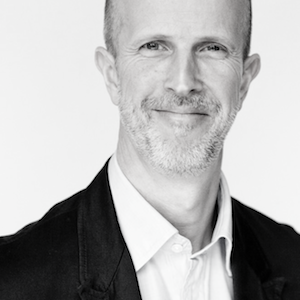There was some hilarity on the Internet a few weeks ago, when Chinese state media published an article advising people to be careful when choosing an English name for themselves—a common practice in the country.
The article explained that while names like Elizabeth and William were ‘fancy’ and ‘conservative’; names like Candy and Sugar make you sound like a stripper.
It was a funny, well-written piece and rightly or wrongly, pretty much true. We do form opinions of people based on a name, whether we should or not.
And while these stories aren’t about naming a company, some of the same lessons apply. We’ve all heard the famous anecdotes about companies that launch a product in Spain or Iran, only to discover that their beloved brand name actually is slang for genitalia or horse manure.
Nowadays, naming a brand or product is no less of a minefield. Thanks to the wonderfully connected world we live in, you simply find out that you’ve called your new washing powder the Russian slang word for being blind drunk much more quickly.
We work on a lot of naming projects, and it is inordinately difficult to get right for all the reasons mentioned above—meaning, relevance, translate-ability. Bolt on the added complexity of subjectivity—whether people even like or respond to it or not – and you’ve got all sorts of issues.
But on the other hand, brands can also get away with things that people might not countenance. You might want a name that sounds unusual, memorable, dark, fun or silly. Look at the name ‘Virgin’ out of the brand context—would anyone dare come up with that now? ‘What do you think Bob?’ ‘Makes us sound like a bunch of spotty teenagers’. ‘Ted?’ ‘Me too; doesn’t strike the right note of professionalism.’
The Internet, and the breadth of knowledge now available to us actually makes naming even harder. When you can choose from any word in the world, in any language, from any culture or heritage—where do you start?
Ultimately, when naming a product, service or company, you can do all the due diligence you want on global acceptability and translatability (and of course, you will have to do some of this) but it boils down to making a simple informed choice and building a brand with integrity and meaning around it. Once the brand comes to stand for something, the name will too.
Working out what values you stand for and making sure your name reflects that might sound simple, but is something companies continually fail to do. The Post Office’s ill-fated (and short lived) rebrand as Consignia might have been more than a decade ago, but companies haven’t grown out of the ability to pick terrible, meaningless names.
Only when a name means something to the people in the company, speaks to the work they do and the values they hold—whether that’s serious, lighthearted or even a little irreverent—will the name stand for something. Look at Virgin now!
About the Author
Keith Forbes is the creative partner and a co-founder of Good.
With over 25 years experience in design, branding and advertising Keith set up Good in 2004 with Chris Lumsden. Today it is one of the UK’s most respected and effective branding consultancies with clients as far afield as Russia, India and the USA where he consults at a strategic level for the likes of Ford, Campari, Honeywell, Angostura and Unilever.
A previous MD of the Year and Board Director for the Design Business Association (design’s governing body in the UK) he is also a guest lecturer at Duncan of Jordanstone College of Art where he gives something back the the next generation of the industry.
